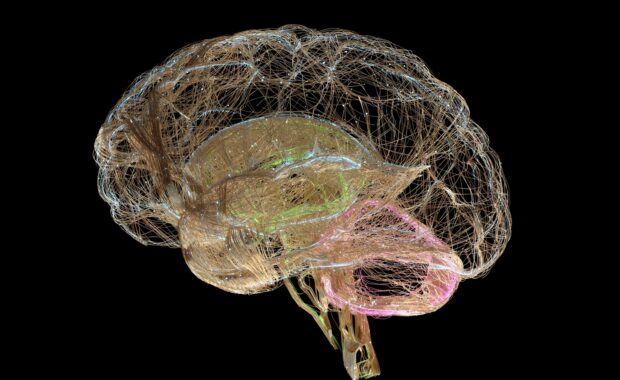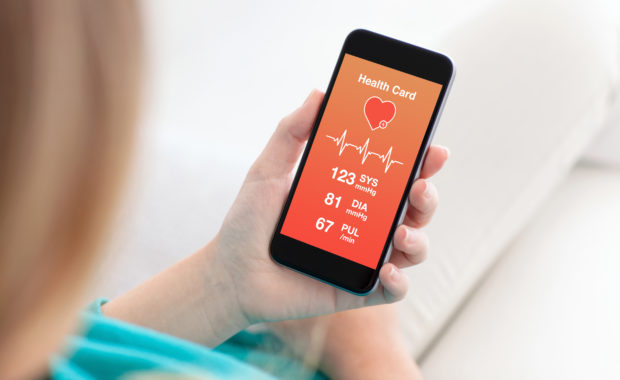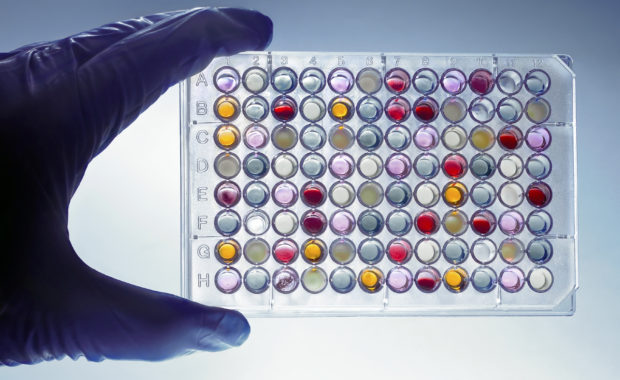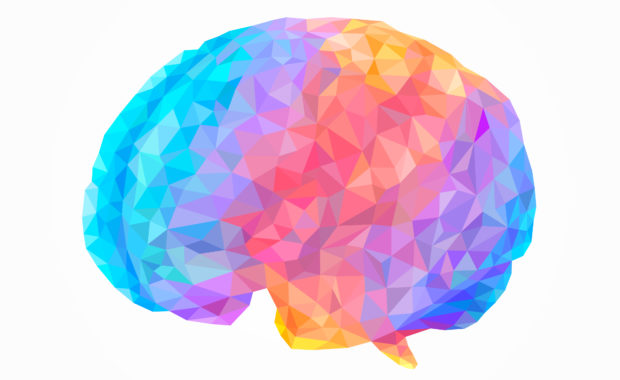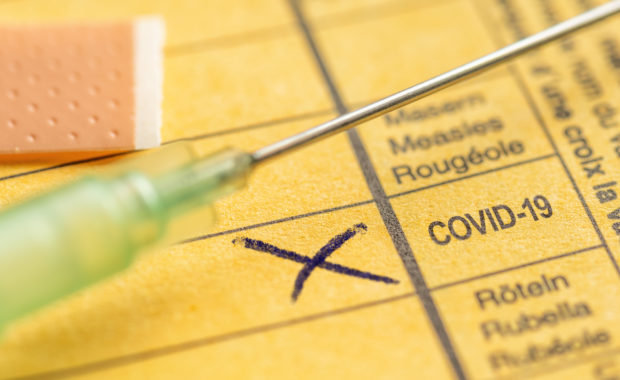References Hodges, A. (1983). Alan Turing: The Enigma. Princeton University Press. http://www.press.princeton.edu Kuhn, T.S. (1962, 1970, 1996, 2012). The Structure of Scientific Revolutions. University of Chicago Press. http://www.press.uchicao.edu Raman, I.M. & Ferster, D.L. (2021). The Annotated Hodgkin & Huxley: A Reader’s Guide. Princeton University Press. http://www.press.princeton.edu Schrodinger, E. (1944, 1958, 1967). What is Life? Cambridge […]
New Consciousness Research Holds Therapeutic Potential for Vulnerable Patients
5 minute read Most of us have some intuitive sense of consciousness as a state of awakeness or awareness of internal or external mileius (APA, n.d.). Yet the ‘hard problem’ of consciousness as proposed by Australian cognitive scientist, David Chalmers, remains intractable. That question is: What makes a physical state conscious rather than unconscious, and […]
Siri vs. Skynet: What’s Behind the Fear of Artificial Intelligence?
5 minute read It is curious that so many individuals are wary of artificial intelligence, given its widespread use. Most of us wouldn’t think twice about asking Siri for advice, yet ChatGPT is an entirely different story. Why do people feel perfectly comfortable keeping company with a virtual personal assistant, but not with a natural […]
Thinking Makes it Richer: Why the Pursuit of Deep Thought is Education’s Greatest Reward
3 minute read Having recently completed the coursework for a doctoral degree in behavioral health, I find myself reflecting on what that means, beyond any benefits to career advancement. Life is the greatest ocean of unknowns any of us will experience. We are thrust into it, unprepared except for the guidance of our parents, and […]
How the Placebo Effect Can Improve Therapeutic Outcomes for Pain
Original post available here. The placebo effect, defined as symptom improvement following delivery of an inert substance, is often cast in a negative light, as a confounder during research and indication of malingering among certain patients. However, studies indicate just the opposite: placebo can improve symptoms of pain and discomfort, due to specific neurochemical responses […]
Resilience: The Science of Bouncing Back
Original post available here. Resilience is described as the ability to recover and grow in the face of stressors and changing demands (Deuster & Silverman, 2013). A lot of research about resilience has come from the US military, triggered a decade back by troops returning from Iraq and Afghanistan with severe emotional trauma. There is […]
Can Religion and Spirituality Help with Managing Chronic Pain?
Original post available here Our current medical system derives largely from the biomedical model, which focuses on physical causes for disease. The more recent bio-psychosocial model posits that other factors, including your emotional state, support system (friends and family), and the environment also play a role, both in the development of disease and its prognosis. […]
Can Artificial Intelligence Outperform the Human Brain?
2 minute read As the field of artificial intelligence advances, health care providers express concerns about whether computers will at some point outperform us. Although machine learning and particularly deep learning has produced some impressive achievements, the way that the human brain develops and acquires knowledge cannot at this point be replicated. This does not […]
East Meets West: A Global Perspective on Healthcare Ethics
3 minute read Although there is consensus regarding importance of cultural competency in healthcare delivery (Hoge et al., 2014), our ethical framework is distinctly western. Beauchamp and Childress’ Principlism theory (2019), which forms the basis for this focuses on four concepts- respect for autonomy, beneficence, nonmaleficence and justice- all having cross-cultural relevance. However, the way […]
Are Mobile Phones the Newest Members of the Care Team?
3 minute read Mobile phones are ubiquitous, with data from GSMA Intelligence citing 5.27 billion unique mobile phone users around the world (Datareportal.com, 2021), and the number of users growing at a rate of 2.3% per year. This represents 66.9% of the population (Datareportal.com, 2021). According to a 2021 report by Statista, the United States […]
Evolving Roles for Behavioral Health in Precision Medicine
3 minute read There is no question that precision medicine, defined as the use of genetic, genomic, and epigenetic information to ‘personalize’ therapeutic strategies is creating unprecedented opportunities for improving health care delivery (Denny et al., 2021). As the cost of genomic sequencing decreases, the speed at which such technologies are transitioning from ‘bench-to-bedside’ has […]
The Beauty of Numbers: How Mathematics Drives Scientific Inquiry
2 minute read The Cambridge dictionary defines mathematics as a system for the study of numbers, shapes, and space (Cambridge.org, n.d.). While most of us conceptualize mathematics as a method for computing complex functions, the true beauty of numbers lies in their ability to transcend cultural and linguistic barriers. Simply put, mathematics is the universal […]
Flow: How mindfulness can drive intellectual and athletic achievement
2 minute read The role of mindfulness meditation in reducing stress, anxiety and depression is well established, with a 2017 meta-analysis linking such practices to better control of the sympathetic nervous system (Pascoe et al., 2017). Key to the practice of mindfulness is present-state awareness, also referred to as flow (Davis & Ludwig, 2018). In […]
Tiny Housekeepers: Emerging Roles for the Smallest Brain Cells
3 minute read If neurons are the brain’s rock stars, then glia are its supporting cast. Although neurons are the only brain cells that can transmit electrical signals, glia maintain energy homeostasis via glycogen storage and regulation (Dienel & Carlson, 2019) and are intimately involved in the production and regulation of two essential neurotransmitters: GABA […]
What can Behavioral Economics Prospect Theory Teach us about Vaccine Pushback?
3 minute read Behavioral economics, as proposed by Kahneman and Tversky, was created in response to neoclassical theories that endorse rational decision-making (Reuter & Montag, 2016). According to Nobel laureate, Daniel Kahneman, people make decisions based on heuristics and biases, which, depending on the situation, may or may not yield the greatest gain (Kahneman, 2011). […]
Goober’s Logic: Lessons from my Cat
2 minute read It is no surprise that pandemic-related isolation has, for many, had pathological consequences. Hardly a day passes without some mention in the media of anxiety and depression. What has received less attention is how COVID-19 affected our furry friends. For my cat, Goober, it has been the greatest thing to ever happen […]
Food for Thought: How the Brain Feeds Itself
3 minute read The human brain constitutes about two percent of body mass yet consumes approximately 20% of available blood sugar (Mergenthaler et al., 2013). Unlike other major energy consumers such as muscle and liver cells, neurons store very little glucose, certainly not enough to avoid a shortage (Dienel & Rothman, 2019). In addition, while […]
The Greater Good: Working Towards a Post-Pandemic World
2 minute read In a recent article for the New Yorker, physician/author Siddhartha Mukherjee discussed a surprising finding: that COVID-related deaths in a number of low-income countries are a fraction of the totals in developed nations such as the United States, United Kingdom, Belgium, Italy and Spain (Mukherjee, 2021). How could this be? Was this […]


